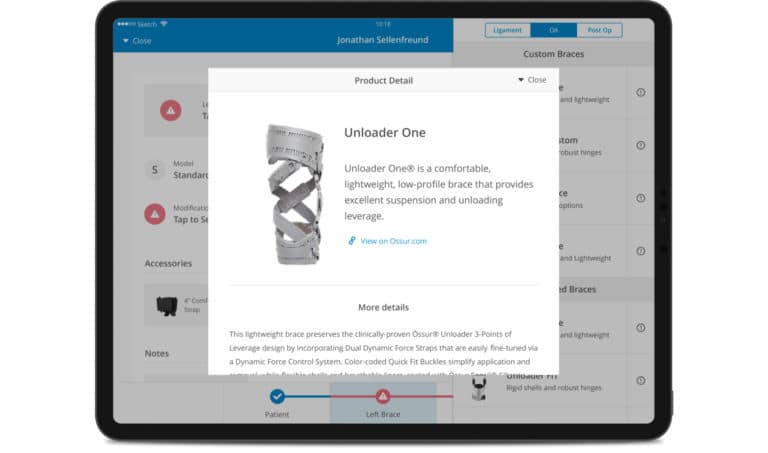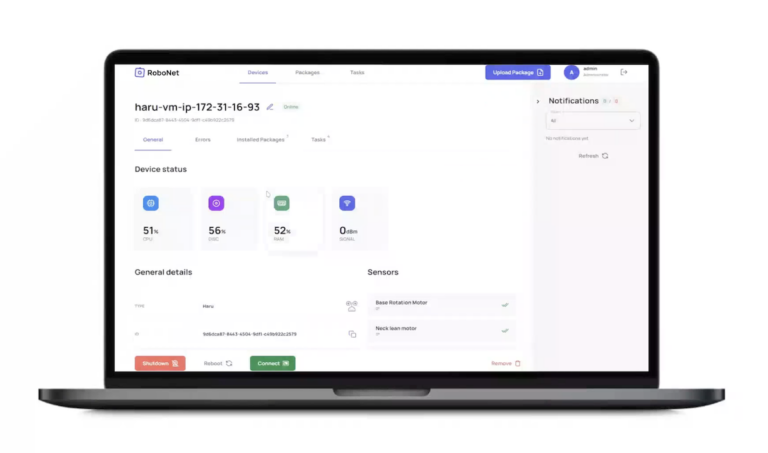Building a Cross-Chain Protocol for the Digital Asset Economy
Qredo is a cybersecurity company that offers a platform for decentralised custody of digital assets. The operational and security overhead of managing wallet keys and the online dangers brought on by trading, storing, and transferring digital assets are all alleviated by Qredo.
Brian Spector, CTO and Co-founder of Qredo, has been involved in what he termed a little dark art of mathematics known as cryptography since his days in high school. It was all thanks to an inspiring professor who sparked his imagination about what could be done with this, at the time, not an extensively understood concept, and how it is possible to transform the financial system.
200+ companies from 25 countries outsourced software development to Relevant
We provide companies with senior tech talent and product development expertise to build world-class software. Let's talk about how we can help you.
Contact usThis article touches on the creation of Qredo; the minds behind the idea, Brians’s back story and how it led him to go out and co-build Qredo, the importance of seeing around corners, the aggressiveness learned in Silicon Valley needed for all in crypto, and Qredo’s mission to become an agent of disruption to the financial market as we currently know it.
Table of Contents
The idea, the history, and the creation
When Brian was studying in high school, there was no cryptocurrency, and those who tried their hand at taming the world of crypto at this point were what Brian classed as the original maths geeks. Usually, those with a high IQ, Alan Turing types, who could get their heads around the crypto concept, ended up working in intelligence agencies.
Having opted for a different path, Brian gravitated towards Silicon Valley, getting the whole ‘Valley’ experience and learning to have that aggressiveness to achieve those not-run-of-the-mill-type goals waiting to be taken. He ended up working in a data security and encryption company, starting as a junior developer.
“We were only getting started at the time. The company was essentially a startup attempting to spread this newfangled encryption protocol that was kind of like a quantum leap forward regarding what you could do with crypto. For the first time, you could actually grab your key and send some information encrypted with that key. You’d have to decode it with another key, which is what public-private key cryptography is all about. From there, it found its way into things like web servers, forming online purchasing, and eventually made its way into communications devices, allowing us to all have encrypted end-to-end chats, transforming the world.
He tells us how he got fortunate in that he didn’t consider himself a brilliant developer, leading him to a different path of product management.
Fast-forward a few years, and in 2010, Brian was the CEO of his startup, which he described as a ‘great, but not setting the world on fire’ kind of business. At this time, Bitcoin started to pique his interest. Looking to the market, he noticed how many, now in droves, began to flock towards Silicon Valley and the world of Bitcoin—it was just starting to hit off.
“I was looking across the table at my main cryptographer when I realised I was squandering my life. I want to go into blockchain, but how to do it? As a result, we all left that company in 2016.”
Due to Bitcoin and blockchain being somewhat new, Brian reasoned that, somewhere in this field, there must be some billion-dollar problems waiting to be tackled.
“I started looking at things from an enterprise security standpoint, hoping that one day, Bitcoin, and the other cryptocurrencies that value usefulness, will be embraced by mainstream traditional finance organisations.”
Brian says that, although this field has come a hell of a long way, there’s still a long way between A and B, and we are only in the beginning stages.
“The goods must grow to the point where you can make Bitcoin fit inside of J.P. Morgan, rather than making J.P. Morgan fit for Bitcoin. I know many crypto purists will go “Ah, boo” at this, but at the end of the day, I am a crypto-anarchist.”

As a coin-operated crypto-anarchist at heart, Brian was searching for a way to move into the market and ultimately disrupt the financial system for one which allows the development of crypto.
The initial stages
In the initial stages of building Qredo, an old friend of Brian’s, Anthony Foy, was interested in what Brian was creating. Anthony sold his former firm, which is now a substantial, large SAS company in the UK, and after almost a year of Brian trying to get him on board, he finally succeeded, and Anthony joined, becoming the company CEO.
Brian told us that if you cut your teeth in product management in Silicon Valley, you’re classically trained in a few things. For example, you are expected to have mind-reading abilities, the skill of forecasting market movements, technologies that are set to come out and influence that market, and if the market will expand.
“I have two superpowers. One is that I’m lucky enough to get people a lot smarter than me to work alongside me. The other is occasionally I can see around corners or just a bit over the horizon, which I learned during the Silicon Valley experience.”

“I actually had the concept for Qredo in my back pocket for a while. The idea comes from a simple idea, keeping in mind that this was four or five years ago. I noticed that every institutional investor dipping their toe in the water, whether it be a hedge fund on Wall Street or Chain Street, would send their Bitcoin off to crypto once they purchased their Bitcoin custodian. You’ve probably heard in crypto, ‘not your keys, not your money’. So, it seemed to me that this was antithetical to the decentralised monetary movement.”
“Why are we buying a decentralised currency that any one government doesn’t control, yet, I’m handing it off to a third party who’s got absolute control and is centralised—that’s just dumb.”
He notes that what this industry needs is a decentralised custodian. “If you think about it, it’s a vault that runs on a decentralised network that is purpose-built to capture all the requirements that the big financial institutions are used to having from their custodian/operations when dealing in stocks, bonds, and so on,” told Brian.
As the initial Qredo team started speck out this approach, analysing all aspects to see if it could work, the team soon realised their approach picked up so many more security benefits. Although, Brian does note that it was the more challenging route from a technical view as it required countless crypto custodians operating at that time, and they had to ask people to send their Bitcoin to a specific address.
“They’d have a ledger, and that was their business—one ledger for one customer. A couple of cold storage custodians would be off the wall. They would print out the private key or the seed value, stick it in a fire pouch envelope, take it to the inside of a mountain under the Swiss Alps, and then lock it up—that’s called storage.”
Change has been coming
Brian told how this opportunity was there to be had, a market that he felt was ripe for disruption, as he considered the ridiculousness of the current process unfathomable and of no use to anyone.
“If you have some kind of economic opportunity, as a trader, you want to trade with your Bitcoin out of custody. This is an electronic network, and you’d be able to do that with minimal delay. However, these custodians said it would take three or four weeks to get the fireproof power pouch out of the Swiss mountains.”
Qredo’s mission
With leadership aspiring to become an agent of destruction for the current financial system as it stands today, there is no wonder Qredo has taken off and making waves in the industry.
“From a mission standpoint, a personal mission standpoint, if you study history, such as mercantilist banking all the way through to the history of the United States, you will understand how capitalism has been structured. Particularly around central banking, you will notice that the people close to the nexus of that money, that fractional reserve banking system, are those who really can take advantage of it.”
“The human race has had a pretty bloody go for the last 200-300 years. All the global endemic poverty, food shortages, everything can be traced back to our reliance on fractional reserve banking. That’s what got me into Bitcoin. I read the Satoshi papers and realised this has a chance to usher in a new monetary system globally for the human race that will help uplevel our capability to live in peace and harmony.”

However, Brian says that this plan of destruction to the financial system as we know it is not the cogent business plan VCs are looking to hear when you are out raising that initial capital.
“If you think about how cryptocurrencies work and the main attraction, like Bitcoin, you see that no one controls Bitcoin. It’s permissionless and e-resistant; nobody can take that money away from you. A government can’t seize it; it can’t be taxed; the inflation mechanism within bitcoin is set in a way so any one government can’t devalue it.”
The fairest monetary system
Brian tells us that the most important thing about Bitcoin and cryptocurrency is that it’s the closest approximation of a fair monetary system we have.
“We’ve got a decentralised monetary system where you have millions of nodes all over the globe, running computing power, and miners trying to solve these proof of work puzzles to secure this network through vast amounts of electricity.”
“Nevertheless, there’s this global community working in unison to keep up the Bitcoin monetary network in such a way that it’s functional and continues to grow in value and utility.”
What struck Brian about the whole decentralised crypto space as a whole was that every decentralised cryptocurrency and even their foundations ended up using some guy who had just started up a crypto custodian.
“Their value pitch was ‘we’re centralised, we managed the private keys to the wallets that you send us your money to. And our value proposition is we can manage the security of those private keys that control the funds in those wallets better than you can’. That is just, that’s boneheaded. Crazy, right?”
The difficulties of working in crypto
Crypto is hard. The understatement of the year, I hear you say.
“If you screw up managing a private key or the leaks, or you handle it the wrong way so that an attacker can exploit it to rebuild the key or reconstitute a signature, then, that’s it; you lose your money.”
Brian claims that the best way to protect a wallet full of money is by decentralising the control of the signature process of that wallet, and he believes the reason that became possible was somewhat of a lucky strike.
“When I started getting into Bitcoin, another field of mathematics in crypto, the dark art, started gaining traction in that field. The research went from being purely academic to practical.”
Multi-party computation
“Try to talk to people five years ago about crypto, and their heads would explode. But it’s okay if your head explodes because it sounds like I’m talking sorcery, but this is the biggest advancement in cryptography since the invention of public/private key cryptography in the late 70s.”

That leap forward and cryptographic capability enabled online shopping, and it’s fair to say that it transformed our society, maths and that mathematical innovation enabled the Amazons and the eBays of the world. It’s just mind-boggling, said Brian.
Security risks: We just hit another payload
“I just discovered this great new toy. The problem with cryptocurrency and cryptocurrency wallets is that it uses public/private key cryptography, which means I’ve got a private key. Now, if I lose that private key, I lose my money, right? And that, and that’s a scary thing.”
There is no helpdesk you can call if somebody stole your private key from a Bitcoin wallet, so there’s a level of kind of responsibility Brian believes people find intimidating. This is one of the reasons why many people haven’t gotten into crypto.
“But it’s also why companies like Ledger make these devices where you can carry your crypto keys. The problem is that if you try to run custodian operations, where you’ve got multiple people who need different levels of approval over the release of funds or trading activity, they can’t all be walking around with Ledger’s trying to plug them in; and it’s never going to scale.”
“So, multi-party computation allows a decentralised network of computers across the globe to start throwing big prime numbers at each other in this network protocol. At the end of the protocol run, they’ll have produced a digital signature over something they’ve been given to sign.”
“And as an example, they’ve been given that something signed is a Bitcoin transaction. We all start running this protocol on our laptops, talking to each other over the internet. Nobody can eavesdrop; nobody can try to mess with it.”
Brian tells how even though we don’t have a private key to make a Bitcoin signature, at the end of that protocol, we can generate a digital signature that, to the Bitcoin network, looks, smells, touches, and feels exactly like an EDSA signature. It is an effective way to replace the need to carry a private key with a network protocol.
“From a security standpoint, if I’m a hacker and I know you’ve got 2 billion on your ledger device, there are a couple of different ways I can try and get at that. The most popular form is what we call rubber hose cryptography. This is essentially the part where I find out where you are, tie you down to your chair, and beat you with a rubber hose until you give over your ledger device and the passcode.”
Anyone involved in the industry understands this concern of Brian’s and that this approach is constantly happening. However, with multi-party computation, those identities, and the people behind those machines, can be hidden from which they run the protocol.
Brian claims that an astute attacker wouldn’t have to just find you and get your ledger device in your private key; he’d have to see where all of those people running that protocol across the globe are too located. Therefore, the attack surface for trying to steal your money out of a multi-party computation creative wallet becomes exponentially harder in terms of the effort required.
Brian says there is nothing impossible in crypto, but it’s pretty much impossible when done right.

“This is new, and we don’t even know how this is going to affect commerce and everything else yet. But from a cryptocurrency perspective, it is incredibly revolutionary.”
Hiring: Staffing and the company make-up
“We’ve been hiring at such a dizzying pace now at a count of 150 employees.” Brian tells how the second seed funding closed in February 2020, and whilst the world was starting to wake up to COVID, he and Anthony decided they needed to move to an all-home-based workforce. After doing this, they decided it made sense to hire from all corners of the globe. “In hindsight, why didn’t we do that anyway?”
The war for talent is so extreme right now, and Brian notes how nobody in blockchain has the luxury to hire from one geographical location. “If you are a great engineer, and we can figure out a way to make it work, we’ll take you.”
Qredo works with many engineers based in Bulgaria, partly because, as Brian says, they are great engineers but also have this fantastic Eastern European mindset, which he put down to the necessity and scarcity developed over decades. He compared Americans with Eastern Europeans, stating, “Americans work hard because they’re inspired. Many of us are lazy as we lack inspiration. But in Eastern Europe, there is this, let’s roll up your sleeves, sort of demeanour just to get the job done.”

Challenges: Hiring and keeping up with the speed of growth
There are challenges you want as a business and challenges you would often rather avoid, but the challenge of hiring at speed, thanks to your initial success and a startup hitting precisely what the market was looking for, is a challenge all startups seek. However, Brian marks that, even though a positive thing, it comes with difficulties, especially in a saturated market.
Brian tells us how a cultural fit is key if you want to be a part of the Qredo team, but he stresses how easy it is to get hires wrong. Qredos key to its hiring success is thanks to the excellent HR team they have established. He tells how they have been in the trenches of the Qredo hiring war for a while. They have paid diligent attention, creating a crystallised profile full of the right people to do the job.
Brian sympathises and understands the difficulties of online meetings and interaction but stresses that this is something you can and must overcome. It’s important because the virtual meetings can become quite exhausting, but being open to learning new skills about how to exercise some soft power to convince, cajole and try to make people see it your way is inevitably needed in the new post-COVID-19 working world.
Cultural fit
One of the cultural fit characteristics that Brian mentioned was aggressiveness. He emphasises how important this is when trying to change the way of the world, and Qredo, created by founders who are ready to disrupt the system as we know it, hires world changers.
“So, both Anthony and I cut our teeth in Silicon Valley. We both started our careers there, and the mindset in the valley is hard to replicate.”
Qredo is searching for the aggressiveness of having that kind of killer instinct. Brian related it to a brutalist form of capitalism that Americans practice, which for some, Brian believes the challenge is fun.
“If you’re in a high-tech company, particularly in the blockchain space, fortunes can be made and lost overnight. You have to be ready for the ride. As Andy Grove said, Only the Paranoid Survive.”

“I don’t necessarily like the pressure of all the time, but I do like working in this industry where I get the chance to solve hard problems and puzzles every day. In its own way, it is a form of aggressiveness. Let’s see how bold your vision can be.”
Tech debt and protocol debt
Brian highlights that the growth of the product is one of his personal challenges and a sort of relentless pressure to get their protocol upgrade out. He mentions how his version one protocol was done like most startups.
“You sort of drive off a cliff in a half-built aeroplane, and you’re trying to assemble the wings before you crash, which ends up building a lot of technical debt.”
“With cryptocurrency, it’s interesting because you don’t just build technical debt but also a protocol debt. So often, you have to stop and look at the situation to assess whether you took it as far as you can; now, let’s backpedal a little bit and take another way out.”
Brian’s other challenge is that crypto and the disruption they are trying to source up is next-level brutal. This rings even more true if you’re trying to do something incredibly bold and disruptive, just as Qredo is.
Your Next Read
Our core services:
Do you want a price estimate for your project?
Do you know that we helped 200+ companies build web/mobile apps and scale dev teams?
Let's talk about your engineering needs.
Write to us












